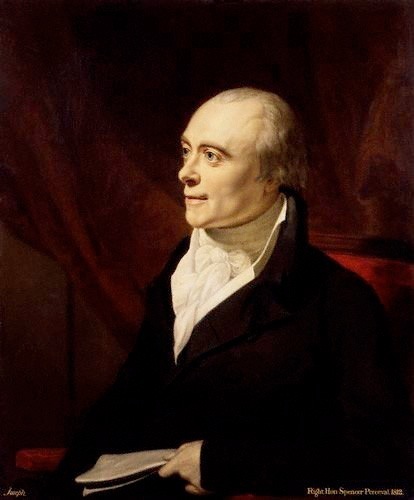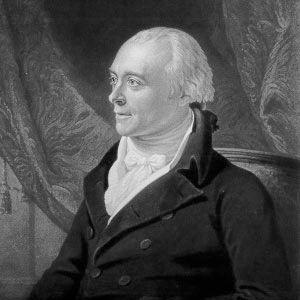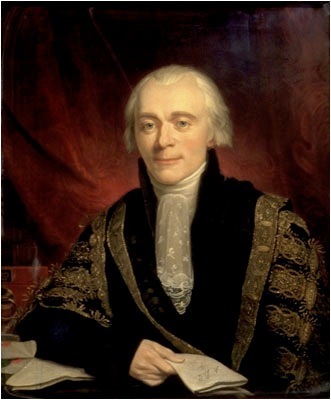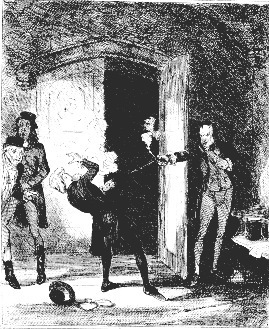Regency Era Prime Ministers-Spencer Perceval
Regency History
Often in my research I keep needing to find who was leading the government and do this through every book. I thought that having the list handy would be good, and then turning it into a research webpage even better. Here is the list. After I post a few more Timeline years and write some more, I will work on the web page with notes about each PM.
The next PM I am doing is Spencer Perceval and I am hosting a page devoted to him and then all our period PMs at Regency Assembly Press. That page is here.
William Henry Cavendish-Bentinck, 3rd Duke of Portland
04/02/1783
12/19/1783
Whig
William Pitt the Younger
12/19/1783
03/14/1801
Tory
Henry Addington 1st Viscount Sidmouth, “The Doctor”
03/14/1801
05/10/1804
Tory
William Pitt the Younger
05/10/1804
01/23/1806
Tory
William Wyndham Grenville, 1st Baron Grenville
02/11/1806
03/31/1807
Whig
William Henry Cavendish-Bentinck, 3rd Duke of Portland
03/31/1807
10/04/1809
Tory*
Spencer Perceval
10/04/1809
05/11/1812
Tory
Robert Banks Jenkinson, 2nd Earl of Liverpool
06/08/1812
04/09/1827
Tory
George Canning
04/10/1827
08/08/1827
Frederick John Robinson, 1st Viscount Goderich
08/31/1827
08/21/1828
Arthur Wellesley, 1st Duke of Wellington
08/22/1828
11/16/1830
Charles Grey, 2nd Earl Grey
11/22/1830
07/16/1834
William Lamb, 2nd Viscount Melbourne
07/16/1834
11/14/1834
Arthur Wellesley, 1st Duke of Wellington
11/14/1834
12/10/1834
Sir Robert Peel, 2nd Baronet
12/10/1834
04/18/1835
William Lamb, 2nd Viscount Melbourne
04/18/1835
08/30/1841
Tory* (Tory government, PM a Whig)
Born 11/01/1762 Audley Square, London
Died 05/11/1812 Parliament, London
Major Acts:
Regency Bill 1810 – Enabled the appointment of Prince George as Regent

Spencer Perceval is best remembered as the only British prime minister to be assassinated. A professional lawyer, he made his mark as by holding down the senior posts of Solicitor-General and Attorney-General. An admirer of William Pitt the Younger, he was politically conservative and an active Anglican, opposing Catholic emancipation.
In later life he became an expert on Biblical prophecy and wrote pamphlets relating to prophecies that he had discovered.
When the Duke of Portland put together a coalition of Tories in 1807, Perceval served as Chancellor of the Exchequer and Leader of the House of Commons.
With Portland old and unwell, Perceval was effectively the chief minister, and even lived at 10 Downing Street.
In 1809, Perceval formally succeeded the Duke of Portland as Prime Minister.
It was a difficult time due to the upheavals of the Industrial Revolution and the Napoleonic Wars, and the final descent of George III into madness. His government also suffered from the absence of most of the senior statesmen of the period. He had to serve as his own Chancellor after obtaining six refusals of office.
Assassination
After two years his government had survived much longer than predicted amidst a severe economic depression. Indeed, it began to seem that the situation of his government looked as if it was set to improve.
But Perceval’s administration ended dramatically on 11 May 1812, when he was shot dead in the lobby of the House of Commons on his way to attend an inquiry into the recent Luddite riots. His last words were, appropriately, ‘Oh, I have been murdered’.
The assassin was John Bellingham, a merchant who had incurred business debts in Russia.
He had tried to recover compensation from the government for his losses, but was refused. He therefore sought revenge on a representative of that government and carried out his dark wish.
Perceval’s body rested in 10 Downing Street for five days, mourned by his wife and twelve children. Bellingham was later tried and hung for Perceval’s murder.
Family
Perceval left a widow and 12 children. He had only a little more than 100 pounds in the bank. Parliament voted 50 thousand pounds to his children and an annuity to his eldest son Spencer of 1000 a year.
Ministry
10/04/1809 05/11/1812
Spencer Perceval – First Lord of the Treasury, Leader of the House of Commons, Chancellor of the Exchequer and Chancellor of the Duchy of Lancaster
Lord Eldon – Lord Chancellor
Lord Camden – Lord President of the Council
Lord Westmorland – Lord Privy Seal
Richard Ryder – Secretary of State for the Home Department
Lord Bathurst – Secretary of State for Foreign Affairs and President of the Board of Trade
Lord Liverpool – Secretary of State for War and the Colonies and Leader of the House of Lords
Lord Mulgrave – First Lord of the Admiralty
Lord Chatham – Master-General of the Ordnance
Lord Harrowby – Minister without Portfolio
Changes
December, 1809 – Lord Wellesley succeeds Lord Bathurst as Foreign Secretary. Bathurst continues at the Board of Trade.
May, 1810 – Lord Mulgrave succeeds Lord Chatham as Master-General of the Ordnance. Charles Philip Yorke succeeds Mulgrave as First Lord of the Admiralty.
March, 1812 – Lord Castlereagh succeeds Lord Wellesley as Foreign Secretary.
April, 1812 – Lord Sidmouth succeeds Lord Camden as Lord President. Camden remains in the cabinet as a minister without portfolio.

“I have nothing to say to the nothing that has been said.”













